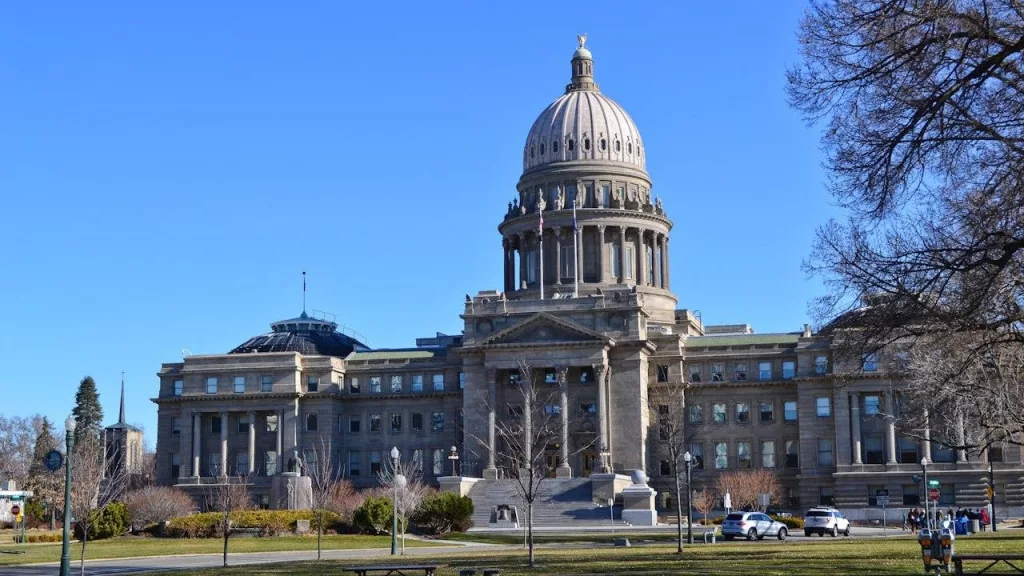BOISE, ID – For years, Idaho state lawmakers have worried the federal government might cut Medicaid funds. That’s partly why the Legislature didn’t expand Medicaid to more low-income earners. In 2018, voters approved that policy through a ballot initiative.
Now, as many states brace for federal cuts and policy changes to Medicaid under the One Big Beautiful Bill Act passed by Republicans in Congress and signed by President Donald Trump, Idaho is well-positioned to handle the changes, said Idaho Sen. Julie VanOrden, who chairs the state Senate’s Health and Welfare Committee.
The Pingree Republican pointed to a range of Idaho’s systems that other states are looking to set up, like a panel of state lawmakers to oversee contracts and an emergency fund to deal with higher-than-expected costs.
“A lot of it came from the rising cost of Medicaid. So I think we have that in common with what the federal government is looking at,” she told the Idaho Capital Sun in an interview.
But the new law passed by Congress gets in the way of Idaho’s plan to tap into one tool to pay providers more for Medicaid services, by capping state-set payment rates.
Medicaid pays a portion of what health care services cost. Mega bill caps payments to providers.
Medicaid, which insures around one-fifth of Americans, often pays much lower than what it costs health care providers to give out services.
That’s why in April 2024, the federal agency that regulates Medicaid allowed states to require private companies that manage Medicaid benefits to pay providers rates for services as high as commercial insurance plans pay.
In the future, Idaho plans to use that structure, called state-directed payments, as part of a new large Medicaid cost-cutting bill approved by the state Legislature this spring that will shift all Idaho Medicaid benefits to being run by private companies. That model, called managed care, is used widely across the country.
Idaho Medicaid to be privately managed in 2029, health officials expect
The bill didn’t spell out how high Idaho’s state-directed payments would be. But VanOrden said lawmakers were “banking on” getting the average commercial state-directed payment rates.
“Certainly, it’s a disappointment that we won’t be able to apply for those waivers anymore to get that average commercial rate, which we were banking on,” she said.
But she doesn’t think losing that higher rate will affect Idaho’s funding plans as part of the shift to managed care.
The new federal law caps Medicaid state-directed payments at as high as rates for Medicare, which reimburses more but still not as much as providers say the true treatment costs are.
The mega law’s new cap on state-directed payments won’t affect the status quo in Idaho, Idaho Medicaid Deputy Administrator Sasha O’Connell told a state legislative panel last month. It could limit Idaho’s ability to raise that in the future, she added.
But the status quo in Idaho — which has the worst doctor shortage in the nation — isn’t really ideal, Idaho Hospital Association CEO Brian Whitlock told the Idaho Capital Sun.
“Status quo is we’re still 50th in the nation in physicians per capita. Status quo means we’re still having a workforce shortage throughout the health care system,” he said. “Status quo still means that more than half of our rural hospitals have less than a 1% operating margin, which is razor thin. Status quo means some of our hospitals are well below the standard of days cash on hand to operate. Status quo means you’re going to wait months to get in to see a specialist.”
States with state-directed payment rates higher than the new cap will have to ratchet down over time. That means Idaho’s new ceiling for state-directed payments will be every other state’s floor, Whitlock said.
“It may take some states 10 years to ratchet down and get to the Idaho level of 100% of Medicare,” he said. “And in the meantime, every other state that is participating in state directed payment programs has a distinct competitive advantage over Idaho, including our neighboring states.”
Idaho was already working toward Medicaid work requirements, more eligibility checks
But some other new Medicaid changes that are part of the new mega law might not affect Idaho as much.
The new federal law calls for Medicaid work requirements and twice-a-year eligibility checks. The Idaho Legislature already passed a law this year to ask the federal government for permission to do that.
And Idaho’s status quo won’t be affected by new federal limits on taxes on health care providers, which states use to access more federal funds, state health officials say. That’s because Idaho’s taxes on providers like hospitals and nursing homes are below the new caps, O’Connell said.
How Congress’s megabill will impact Idaho: Cuts to taxes, Medicaid, SNAP and more
Idaho is also looking to tap into a new $50 billion, five-year rural health fund established through the new federal law.
In a column published last month in the Times-News, Idaho’s U.S. Sen. Mike Crapo — a Republican who pushed for several aspects of the One Big Beautiful Bill Act — said Idaho wouldn’t be affected by the new Medicaid reforms on provider taxes and state-directed payments.
“Instead, Idaho’s rural hospitals will benefit from a new Rural Health Transformation Program that allocates money to all states, not just those using gimmicks to draw down more federal money,” Crapo wrote.
For five years, Idaho could receive $100 million each year from the fund, he said.
“This is arguably the single largest investment in rural health care in more than 20 years,” Crapo wrote in the column for the Twin Falls newspaper. “While it provides a way for states that do rely disproportionately on federal funding to make a financial plan, states like Idaho can provide immediate relief to rural hospitals and establish the tools necessary to be successful in the future.”
Over the next decade, the bill is expected to cut federal funds for Idaho Medicaid by $4.3 billion and reduce Idaho Medicaid’s enrollment by as much as 40,000 people, estimates in early June from the group Manatt show. The analysis assumes work requirements will cut Medicaid enrollment and costs.
Idaho Capital Sun is part of States Newsroom, a nonprofit news network supported by grants and a coalition of donors as a 501c(3) public charity. Idaho Capital Sun maintains editorial independence. Contact Editor Christina Lords for questions: info@idahocapitalsun.com.





